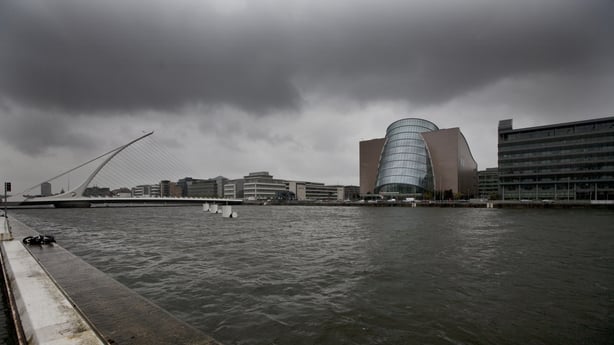Scientists from Dublin City University (DCU) have found antibiotics and antidepressants in four Irish rivers at levels that are harmful to aquatic life. They say current waste water treatment in Ireland is not sufficient to deal with the problem.
The scientists from DCU's Water Institute took surface water samples from the rivers Nore, Suir, the Annalee in Co Cavan and the Liffey in Dublin over the period from September 2020 to March 2022.
They tested for 16 pharmaceuticals commonly found in European rivers and found all of them present in Ireland.
The highest levels were found in Dublin which the researchers say is not surprising given the population density there. Sulfamethoxazole an antibiotic and Venlafaxine an antidepressant, made up most of the positive tests.

Professor Fiona Regan, one of the authors said: "The presence of antidepressants and other pharmaceutically active products in rivers can - even at low concentrations - have negative impacts on metabolism in organisms and on levels of biodiversity."
"The presence of antibiotics in rivers is important and concerning because of increasing worries about antibiotic resistance in humans and animals," she added.
While some levels found were above the predicted 'no effect level', the team also did tests on organisms at levels found in the rivers below that threshold and found there was an effect on their heart rate and reproduction levels.
Prof Regan said the levels are below that which would affect human health but are a threat to river ecosystems and to biodiversity.
Outflows from waste water treatment plants and septic tanks are believed to be the main source of the pharmaceutical pollution, though leachate from landfill sites could be another contributor.
Better treatments
Prof Regan said there is a need to look at better treatments at waste water plants although some of these could be expensive.
Ireland's population is both increasing and growing older and this will probably mean more people using more medicines, increasing the pressure on rivers and other water systems.
When asked if there are plans to upgrade waste water treatment plants to deal with the problem, Uisce Éireann said: "To remove pollutants such as antidepressants and antibiotics quaternary treatment would be required, which is not a requirement of EPA authorisations.
"We note that the European Directive on Urban Waste Water Treatment is currently being reviewed and this includes the possible provision of quaternary treatment at WWTPS catering for a population equivalent of over 100,000 under certain scenarios.
"However any changes to the Directive will require ratification by the Commission followed by a number of years for implementation."
Other actions that could help reduce pharmaceutical pollution in rivers include lower levels of prescribing some drugs particularly antibiotics and more promotion of bring back schemes where people are encouraged to return unused drugs to pharmacies for proper disposal.







